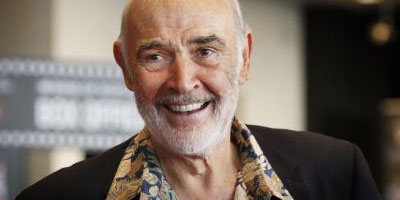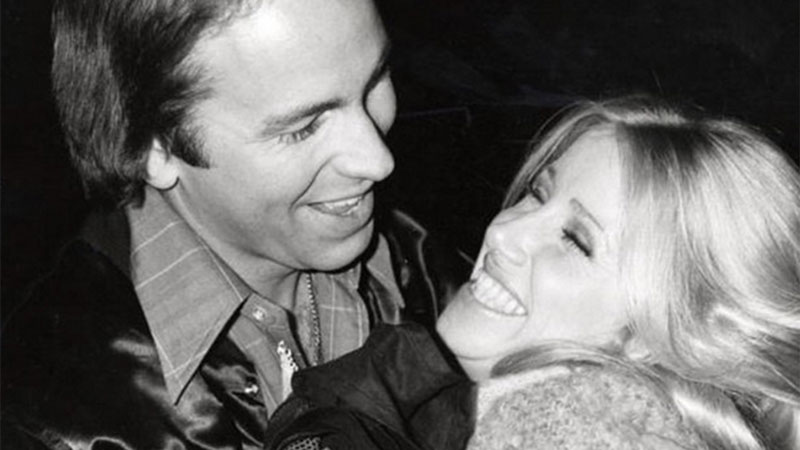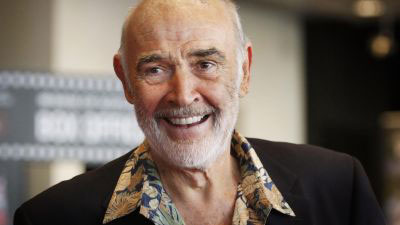
We are all aware that there is a disparity in pay between men and women at this point, and we are also conscious of the fact that many women have successfully advocated for higher salaries for themselves. We have no choice but to presume that many male performers have bet on themselves and been successful; what about those actors who played hardball and were unsuccessful?
There are potential downsides to requesting a pay increase. Everyone is aware of this fact. You run the risk of not only being rejected and made to feel ashamed but also of having your work terminated. Although this extreme reaction does not happen very often in Hollywood, it is not unheard of. The performers on this list went home empty-handed because they were willing to sacrifice everything to get a bigger piece of the pie.
Suzanne Somers and John Ritter

The excitement and anticipation surrounding the television show Three's Company as its cast and staff prepared for its fifth season in 1980 were palpable. The sitcom had quickly become one of the most popular television shows, and not only that, but Suzanne Somers and John Ritter, two of the show's stars, had just received nominations for Golden Globes. But Somers wasn't in a good mood.
She addressed executives at ABC and argued that she deserved a higher salary than the $30,000 that she was making for each episode. Her goal was to make the most of the notoriety that she had gained. Even though the network agreed and offered Somers a raise of $5,000 each episode, Somers had her sights set on a considerably higher figure. The Hollywood Reporter states that the actress wanted $150,000 for each episode she appeared in. If that were to happen, she would then be on a level with other TV stars, such as her co-star Ritter. Somers lost her job because she refused to shoot after the network denied her request to appear on the show.
Somers might have emerged victorious from the battle if everything had gone perfectly. According to her husband, Alan Hamel, the issue was that ABC was supposedly feeling compelled to put a stop to a recent trend as soon as possible. According to Hamel's interview with The Hollywood Reporter, he received a phone call from a buddy who had contacts high up at ABC. The friend told him, "They will hang a nun in the marketplace, and the nun is Suzanne."
Sean Connery

It's possible that Sean Connery resigned, but it's also possible that he was fired. After the events of You Only Live Twice, he was subsequently replaced. Even before making the picture, Sean Connery made it known that he had grown bored with the James Bond franchise, but the outspoken star also took issue with the financials surrounding the films in the franchise.
According to Turner Classic Movies, Connery thought that he should be entitled to a greater share of the overall earnings made by the franchise. According to the Express, the leading man agreed to star in You Only Live Twice in exchange for $750,000 and a 25 percent portion of the profits from merchandise sales. According to reports, the producers realized that would not satisfy Connery the following time, so they searched for a replacement star. Enter George Lazenby.
The producers could bargain with Sean Connery from a position of power because there was a potential replacement in the form of Lazenby waiting in the wings. Reportedly, when it came time to create the next James Bond film, Actor Sean Connery said he would only return to the Bond franchise if he received a million dollars and a portion of the film's earnings for starring in Her Majesty's Secret Service. This was Connery's only condition for returning to the role of James Bond. Reportedly unwilling to meet these demands, the filmmakers hired Lazenby for a salary of $50,000 to play the role of the new James Bond.
Valerie Harper

There was cause for optimism during the second season of the sitcom Valerie, which starred Valerie Harper and a younger version of Jason Bateman. This was because the show's ratings were getting better. The actress, who plays the title role on the show, decided to inquire about a pay increase once it appeared that the series would have a successful third season.
She was supposed to make "$56,750 each episode by her third year, plus 10 percent of the show's adjusted gross profits," but People reports that she asked for a new contract that would pay her $100,000 per episode 35 percent of the profits instead. Harper resorted to an old strategy when the studio showed resistance.
She had a starring role in Rhoda's television show twelve years ago. Back in those days, when Harper's request for a pay raise was turned down, she stopped showing up for work and eventually received what she wanted. The strategy of holding out, on the other hand, did not work as well this time. The show producers agreed on the parameters of a new contract that would pay them $65,000 per episode and 12.5 percent of the earnings. Because of this, Harper could return to the set, but only temporarily. She was sacked after only filming a single episode of the show.
The writers of Valerie decided to end Harper's story after the series lost its namesake star, which resulted in the show being renamed Valerie's Family for its third season. After that season, the show's title was changed to "The Hogan Family." Even though the show continued to be successful despite the absence of its original star, Harper had the final laugh when she successfully sued the producers for wrongful termination.
Marcus Chong

The saga of Marcus Chong is a bizarre story that, for the most part, manages to fly somewhat beneath the radar. After The Matrix's critical and commercial success, the filmmakers behind the film decided to make two further installments in the series. According to reports, the Wachowskis made Chong an offer to sign with them of $250,000, but Chong wanted a million dollars for his services. These amounts were retold in the actor's low-quality, a self-produced documentary titled "The Marcus Chong Story."
According to reports, Chong's attorney sent a letter to the Wachowskis containing the following demand as an ultimatum: Either the studio meets his price ($500,000, plus bonuses and promises he'll be invited to press junkets and premiers) or he'll make the movies for free. "This information was obtained from Entertainment Weekly. This peculiar approach to the negotiation process was unsuccessful.
After that, the actor reportedly dialed the number for Warner Bros. and discussed it with a person who claimed to be acting on behalf of Andy Wachowski. Because of that call, there was a significant increase in both the drama and the confusion. Chong stated that he was the target of death threats and even attempted to file charges; nevertheless, at some time, Chong was brought into custody for making threats. Chong's allegations are unsubstantiated. The actor's attempt to sue both the production firm and the distributors of The Matrix was fruitless.
Steve Whitmire

Money has been a factor in Kermit the Frog's voice actor and puppeteer Steve Whitmire's dismissal from his position at Disney, even though other reasons for the firing have been cited. One of the grounds offered to Whitmire for his firing was that he "refused to work on a particular project," ostensibly as a result of a disagreement regarding a contractual obligation. In an interview with The Hollywood Reporter, Whitmire stated that he was nothing more than a "casualty" of "a dispute over a contract categorization between SAG-AFTRA and Disney Labor Relations."
But the issues may go beyond merely a disagreement over a contract. According to THR, Disney and The Muppets Studio stated that Whitmire's "style of negotiation delayed productions" and that these were "problems that went on for many years." Disney and The Muppets Studio also claimed that these "issues went on for many years." According to a source who spoke with Gizmodo, Whitmire's contract demands date back to his days on Sesame Street, when he played characters such as Ernie and Kermit for many years. According to the source, many people believe that he quit Sesame Street to devote more time to The Muppets. He was dismissed because he demanded an excessive amount of money. Hey, it's not easy being green.
Jaimee Foxworth

Even though no one from the cast or crew of Family Matters has ever acknowledged the specific reason why Jaimee Foxworth was fired from the show, there have been rumors surrounding one of the most peculiar character firings in the history of television for a very long time. It was during the fourth season of the show when everything went down. During one of the episodes, Judy, the youngest daughter in the Winslow family, goes upstairs and is never seen or heard from again.
Foxworth was removed from the show for "budget considerations," as stated by William Bickley, the show's originator, and co-showrunner. However, there is another persistent allegation that Foxworth's mother might have been responsible for the actress being fired from the show. "Foxworth believes that her mother's demands for more money ultimately led to her contract not being renewed," is stated in an alleged and mysterious BET article circulating in online forums for years and may be the source of the rumor in the first place. Foxworth believes that the article is true. Since Foxworth's mother, Gwynn Fox, was also her manager at the period in question, the events described in the tale are not completely implausible.
Even though the actress's career could never recover from that early setback fully, Foxworth has maintained a sense of humor about the entire situation. She responded to a question from People regarding her role by saying, "I'm still up there in my wardrobe, putting on my outfits."
Crispin Glover

One of Crispin Glover's explanations for why he didn't return for the sequel to Back to the Future is that the studio wouldn't meet his pay demands, and this is even though he has changed his position a couple of times about what happened after Back to the Future and why he didn't return for the sequel.
In an interview with the AV Club, Glover stated that he was given a salary of $150,000 to reprise his role as George McFly in the sequel. This salary was reportedly far lower than the salaries offered to co-stars Tom Wilson and Lea Thompson.
Glover is of the idea that the producers were attempting to oust him against his will. He believes that they wanted his character to be hung upside down in the movie as "punishment" for criticizing the script and that they intended for it to "make [him] physically uncomfortable." Glover claims that he would have been willing to endure such suffering if he had been paid adequately for it. It is said that the actor's employers made an even lesser offer after he sought to negotiate a better deal for himself. Glover exclaimed, "They dropped $25,000!" in response to the news. "They made it abundantly apparent that they did not want me to be in the picture."
According to a somewhat different account provided by The Hollywood Reporter, Glover "didn't like the sequel's script, so he put out a $1 million demand to reprise the part." In an interview with AV Club, Glover asserts that the concept that he "asked for the same compensation that Michael J. Fox was earning" is a "complete lie," even though he says that the story above was part of an attempt to discredit him.



